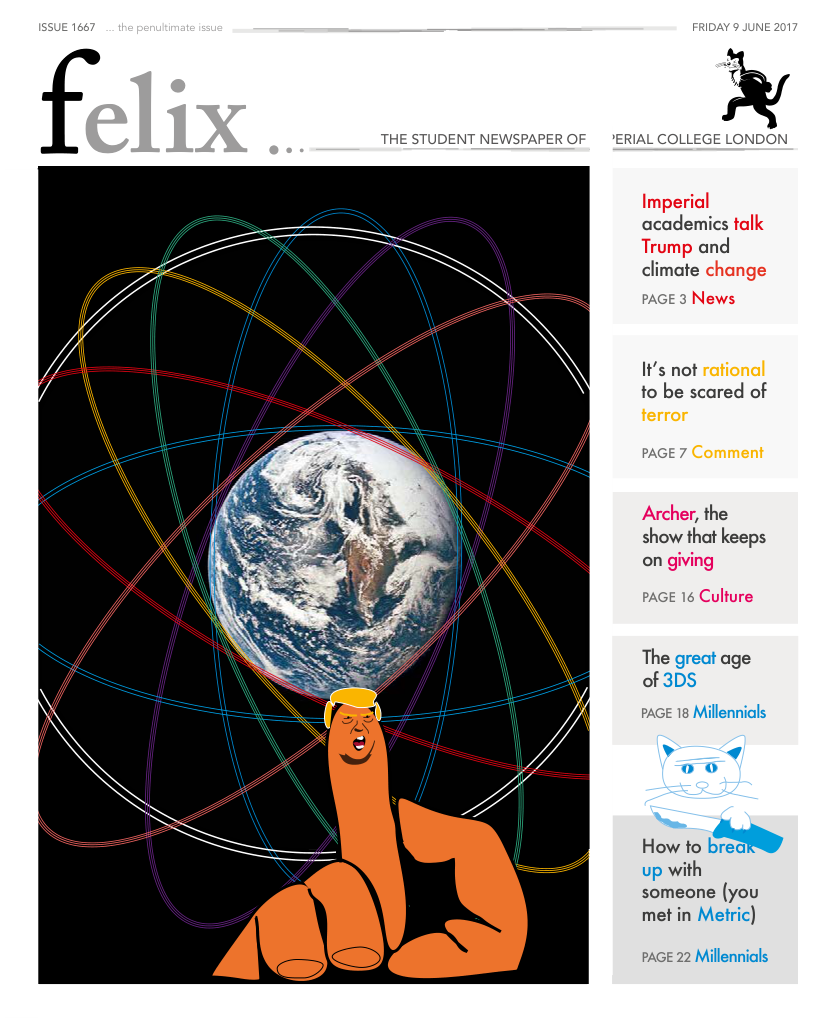Defeating ISIS is impossible. Dealing with them is not
Charles Titmuss thinks that in order to combat terrorism, we must first understand its root causes

The UK has been subjected to a number of terrorist acts. At this point in time it is appropriate to mourn and honour the dead and remember that nothing can justify these acts. At the same time, it is important to look at this topic with nuance if we as a nation wish to solve this problem. Two questions need to be answered: what are the driving factors behind these attacks, and what can be done to reduce the impact that terrorism can have on our daily lives? The emphasis in this article will be on Islamist terrorism.
In order for terrorism to be enacted it is first necessary to radicalise individuals. Radicalisation can take place for a whole range of reasons. The first requirement is often a sense of social and economic isolation and exclusion. This can take the form of relative poverty, or suffering from racism and discrimination. This leads to resentment and anger directed towards the society in which they are living, and is a critical primer to radicalisation. Interactions with extremist content on the internet, as well as proximity to other people sharing the same views, can serve to entrench these feelings. These feelings then need to be inserted into a context to provide direction and purpose for their hatred. Islamism is rooted in Wahhabism or Jihadi Salafism, which preaches, amongst other things, that the West is fundamentally evil and must be destroyed in order to replace it with a version more in accordance with their ideas of absolute good. Proximate examples such as the Iraq war or bombing in Syria are often used in order to further justify the use of violence in accomplishing their goals.
Therefore, looking to the future, these attacks are likely to continue, for a range of reasons. Anger at certain elements of UK foreign policy is unlikely to dissipate. It has been cast, incorrectly, as a war on Islam by Islamist preachers and with the current instability in the Middle East, some form of UK military commitment to the region is likely for a long period of time.
Secondly, there is the presence of radical Sheikhs and militant groups that preach hatred of the West. These personas are easy to access on the internet and often preach around the UK in order to recruit vulnerable people to their cause. Militant groups especially, but also some preachers, rely heavily on funding from states in the Middle East. A recent report commissioned by the Home Office looking into Saudi funding of terrorist organisations was controversially buried as it contained potentially diplomatically damaging information about Saudi activities. Qatar recently had diplomatic relations severed with several different Middle Eastern states over its role in funding this form of terrorism. The preaching of Wahhabi and Salafist Jihadi movements is also unlikely to go away any time soon.
The economic and social factors that begin the path to radicalisation will also prove difficult to remedy. In a world of rising inequality, it is possible that these problems will only increase, and lead to a greater amount of anger from those communities that do not feel the economic benefit and remain excluded from society. It is worth noting that these feelings of anger only make people vulnerable to extremism, and in no way justify extremist actions.
Having ascertained that this problem is not going away, what can be done to lessen the impact or even remedy it? Suggestions have been made by all political parties. Personally I believe that a range of approaches are necessary in order to lessen the possible impact Islamic extremism can have on the UK.
Firstly, efforts need to be made to restrict Wahhabi and Salafist Jihadi movements and the funding that they receive. The repressed report should be published and acted upon to disrupt the powerful individuals that wish to spread violence around the world.
Secondly, more community policing and engagement is required. This is vital as it would help provide a counter narrative to that provided by extremist preachers, and help protect vulnerable individuals. A significant amount of radicalisation occurs within the community, and a wedge must be driven between those who preach extremism and intolerance and the rest of society. Deportations and snap-imprisonment of those willing to commit terrorist acts may not be the best course of action as this could serve to radicalise more people, as well as reducing the time taken to commit attacks. The controversial Prevent programme must be fully funded, and better integrated into communities.
Funding for the security services should be increased, but their powers for surveillance should not. I am of the opinion that they possess the appropriate tools, but not the means. An emphasis on the role of the internet in radicalising individuals should be avoided. While it is a critical battleground, social media companies do not host that much extremist content, as most has moved to places such as Telegram. A recent report by the BBC into IS militants found that a significant proportion were radicalised by local preachers.
I believe that these efforts would reduce the risk to the public. We must not descend into hysteria, we must remain calm and remember that this evil ideology will not defeat us.








